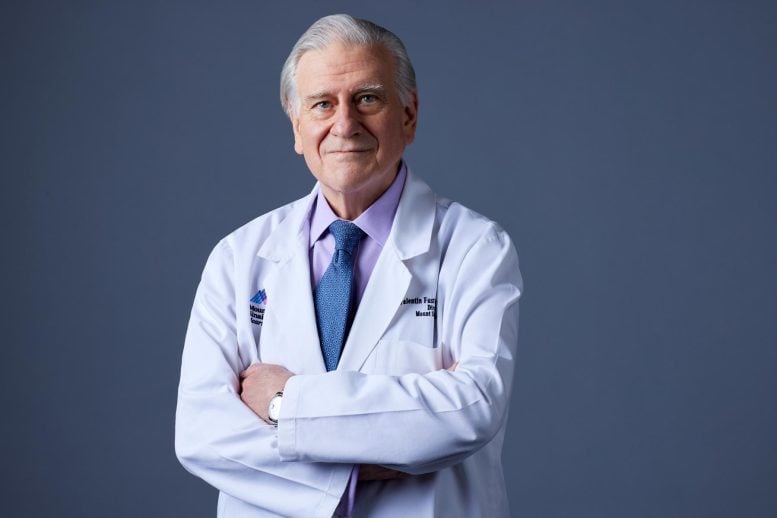
For over 40 years, beta blockers have been prescribed to heart attack survivors as a standard treatment. But the massive REBOOT trial has revealed they provide no benefit for patients with preserved heart function — and may actually increase risks for women.
Standard Treatment Questioned After 40 Years
Beta blockers, commonly prescribed for heart conditions including heart attacks, have now been shown to offer no measurable benefit for patients who experience an uncomplicated myocardial infarction while maintaining normal heart function. Despite being recommended for this group for four decades, their effectiveness in such cases is now being called into question.
The finding comes from the REBOOT Trial, a major study led by Valentin Fuster, MD, PhD, President of Mount Sinai Fuster Heart Hospital and General Director of Spain’s Centro Nacional de Investigaciones Cardiovasculares (CNIC). The results, which challenge one of cardiology’s longest-standing practices, were presented on August 30, during a “Hot Line” session at the European Society of Cardiology Congress in Madrid and published at the same time in The New England Journal of Medicine.
Higher Risks for Women Exposed
A companion substudy of REBOOT, released the same day in the European Heart Journal, revealed an important difference between men and women. Women who were treated with beta blockers after a heart attack faced a higher likelihood of dying, suffering another heart attack, or being hospitalized for heart failure when compared with women who did not receive the medication. This increased risk was not observed in men.
“This trial will reshape all international clinical guidelines. It joins other previous landmark trials led by CNIC and Mount Sinai – such as SECURE with the polypill and DapaTAVI, with SLT2 inhibition associated to TAVI –that have already transformed some global approaches to cardiovascular disease,” says Dr. Fuster.

The SECURE trial showed a polypill, a single pill that combines three medications – which contains aspirin, ramipril, and atorvastatin – reduces cardiovascular events by 33 percent in patients treated with this after a heart attack. The DapaTAVI trial showed that both dapagliflozin and the related medication empagliflozin – drugs used to treat diabetes – improve the prognosis of patients with aortic stenosis treated by transcatheter aortic valve implantation.
Global Impact on Heart Attack Care
“REBOOT will change clinical practice worldwide,” says Principal Investigator Borja Ibáñez, MD, CNIC’s Scientific Director, who presented the results. “Currently, more than 80 percent of patients with uncomplicated myocardial infarction are discharged on beta blockers. The REBOOT findings represent one of the most significant advances in heart attack treatment in decades.”
Although generally considered safe, beta blockers can cause side effects such as fatigue, bradycardia (low heart rate), and sexual dysfunction. For more than 40 years, beta blockers have been prescribed as a standard treatment after a heart attack, but their benefit in the context of modern treatments was unproven. The REBOOT trial, is the largest clinical trial on this subject. The international study was coordinated by CNIC in collaboration with the Mario Negri Institute for Pharmacological Research in Milan.
Largest Beta Blocker Study to Date
Researchers enrolled 8,505 patients across 109 hospitals in Spain and Italy. Participants were randomly assigned to receive or not receive beta blockers after hospital discharge. All patients otherwise received the current standard of care and were followed for a median of nearly four years. The results showed no significant differences between the two groups in rates of death, recurrent heart attack, or hospitalization for heart failure.
A REBOOT subgroup analysis found that women treated with beta blockers experienced more adverse events. Results show women treated with beta-blockers had a 2.7 percent higher absolute risk of mortality compared to those not treated with beta-blockers during the 3.7 years of follow-up of the study. The elevated risk when treated with beta-blockers was restricted to women with completely normal cardiac function after a heart attack (left ventricular ejection fraction of 50 percent or higher). Those with a mild deterioration in cardiac function did not have an excess risk of adverse outcomes when treated with beta-blockers.
Why the Old Standard No Longer Fits
“After a heart attack, patients are typically prescribed multiple medications, which can make adherence difficult,” explains Dr. Ibáñez. “Beta blockers were added to standard treatment early on because they significantly reduced mortality at the time. Their benefits were linked to reduced cardiac oxygen demand and arrhythmia prevention. But therapies have evolved. Today, occluded coronary arteries are reopened rapidly and systematically, drastically lowering the risk of serious complications such as arrhythmias. In this new context, where the extent of heart damage is smaller, the need for beta blockers is unclear. While we often test new drugs, it’s much less common to rigorously question the continued need for older treatments.”
REBOOT Trial Motivation
That was the motivation behind REBOOT.
“The trial was designed to optimize heart attack care based on solid scientific evidence and without commercial interests. These results will help streamline treatment, reduce side effects, and improve quality of life for thousands of patients every year,” Dr. Ibanez adds.
References:
“Beta-Blockers after Myocardial Infarction without Reduced Ejection Fraction” by Borja Ibanez, Roberto Latini, Xavier Rossello, Alberto Dominguez-Rodriguez, Felipe Fernández-Vazquez, Valentina Pelizzoni, Pedro L. Sánchez, Manuel Anguita, José A. Barrabés, Sergio Raposeiras-Roubín, Stuart Pocock, Noemí Escalera, Lidia Staszewsky, Carlos Nicolás Pérez-García, Pablo Díez-Villanueva, Jose-Angel Pérez-Rivera, Oscar Prada-Delgado, Ruth Owen, Gonzalo Pizarro, Onofre Caldes, Sandra Gómez-Talavera, José Tuñón, Matteo Bianco, Jesus Zarauza, Alfredo Vetrano, Ana Campos, Susana Martínez-Huertas, Héctor Bueno, Miguel Puentes, Giulietta Grigis, Juan L. Bonilla-Palomas, Elvira Marco, José R. González-Juanatey, Roi Bangueses, Carlos González-Juanatey, Ana García-Álvarez, Juan Ruiz-García, Anna Carrasquer, Juan C. García-Rubira, Domingo Pascual-Figal, Carlos Tomás-Querol, J. Alberto San Román, Pasquale Baratta, Jaume Agüero, Roberto Martín-Reyes, Furio Colivicchi, Rosario Ortas-Nadal, Pablo Bazal, Alberto Cordero, Antonio Fernández-Ortiz, Pierangelo Basso, Eva González, Fabrizio Poletti, Giulia Bugani, Marzia Debiasio, Deborah Cosmi, Alessandro Navazio, Javier Bermejo, Giovanni Tortorella, Marco Marini, Javier Botas, José M. de la Torre-Hernández, Filippo Ottani and Valentín Fuster, 29 August 2025, New England Journal of Medicine.
DOI: 10.1056/NEJMoa2504735
“Beta-blockers after myocardial infarction: effects according to sex in the REBOOT trial” by Xavier Rossello, Alberto Dominguez-Rodriguez, Roberto Latini, Pedro L Sánchez, Sergio Raposeiras-Roubín, Manuel Anguita, José A Barrabés, Giulietta Grigis, Ruth Owen, Stuart Pocock, Sandra Gómez-Talavera, Ines García-Lunar, Noemí Escalera, Carlos Nicolás Pérez-García, Stefania Angela Di Fusco, Gonzalo Pizarro, María López Benito, Giulia Pongetti, Luis M Rincón-Díaz, Irene Buera, José Rozado, María Jesús García, Oscar Prada-Delgado, Deborah Cosmi, Valentín Fuster and Borja Ibanez, 30 August 2025, European Heart Journal.
DOI: 10.1093/eurheartj/ehaf673
Meeting: ESC Congress 2025
REBOOT was conducted without pharmaceutical industry funding.
Never miss a breakthrough: Join the SciTechDaily newsletter.